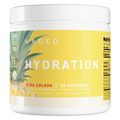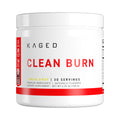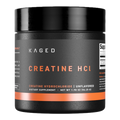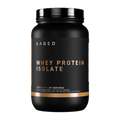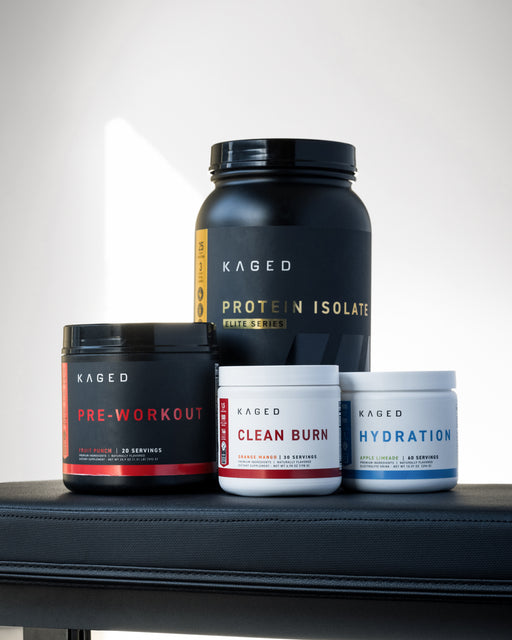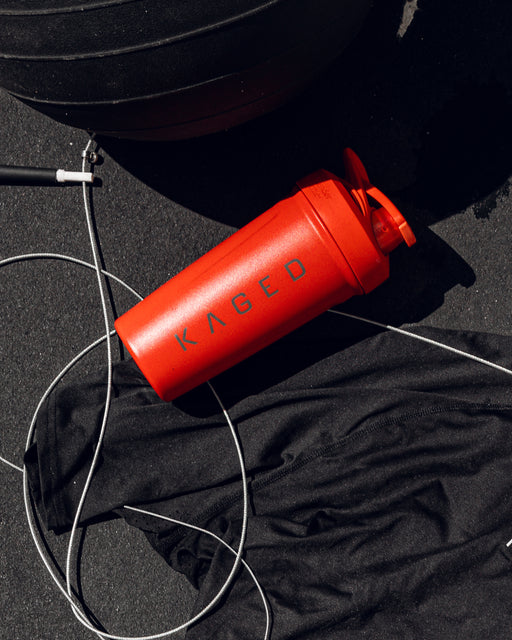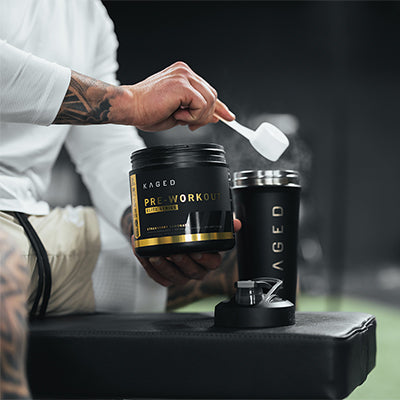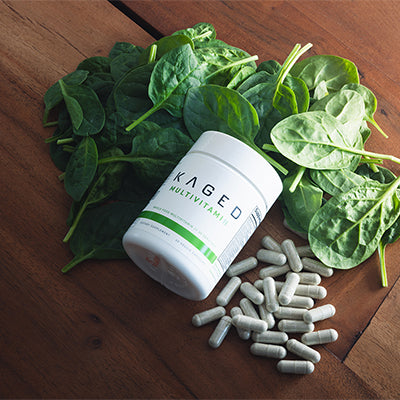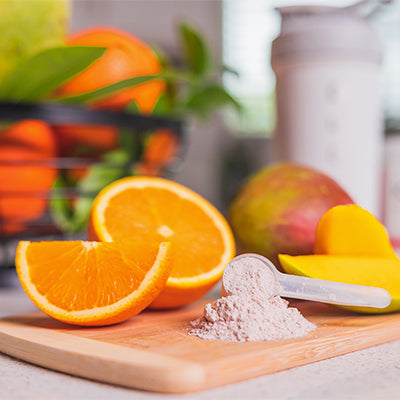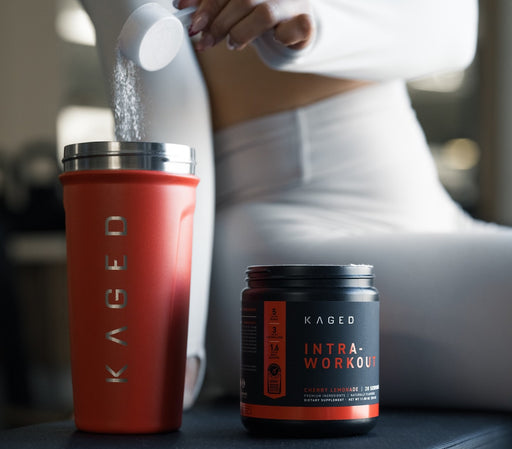Whether you’re just getting started in the gym or pushing serious weights, you’ve probably seen protein powders and BCAA supplements lining the shelves.
Both promise faster muscle gains and less soreness, but they work in very different ways.
In this article, we'll explain the differences between the supplements and when to take each (if you should take them at all.)
In short: protein powders (like whey isolate) are complete proteins with all essential amino acids, including the three branched-chain amino acids (BCAAs).
BCAA supplements contain only leucine, isoleucine, and valine (three of the nine essential amino acids)
For most people, high-quality protein powder is the smarter choice because it delivers all the building blocks your muscles need. The research shows that protein powder is more effective for building muscle and strength than BCAAs.
What Are Protein Powders?
Protein powders are concentrated sources of dietary protein designed to help you hit your daily protein goals more easily, especially if you train hard or have higher protein needs.
They’re made by extracting protein, then filtering and drying it into powder form. The most popular types are whey and casein.

Protein powders are considered complete proteins, meaning they contain all nine essential amino acids your body can’t make on its own.
That includes the three branched-chain amino acids (BCAAs), which play a key role in muscle repair and growth.
So when you take a protein powder, you're already getting BCAAs.
Benefits of Protein Powders
-
Support muscle growth: Protein provides the amino acids needed to repair and build muscle tissue after workouts.
-
Improve recovery: Regular intake helps reduce muscle soreness and supports faster recovery between training sessions.
-
Convenient nutrition: A shake or smoothie offers a quick, easy way to get 20–30 grams of high-quality protein on the go.
-
Promote satiety: Protein helps you feel fuller longer, supporting body composition goals like fat loss or lean muscle maintenance.
Among the options, whey protein isolate stands out for its high leucine content, fast absorption, and low fat and lactose levels, making it one of the most efficient and bioavailable protein sources available.
What Are BCAAs and How Do They Work?
BCAAs, or branched-chain amino acids, refer to three specific essential amino acids — leucine, isoleucine, and valine — named for their unique molecular structure. These three play a particularly important role in muscle protein synthesis (the process of building new muscle tissue) and reducing muscle breakdown during exercise.
Unlike most amino acids, BCAAs are primarily metabolized in your muscles rather than the liver. This makes them especially relevant for athletes and lifters looking to fuel their workouts, prevent muscle loss, or support recovery.
Benefits of BCAA Supplements
-
May reduce muscle soreness: Some research suggests BCAAs can help decrease delayed-onset muscle soreness (DOMS) after intense training.
-
May limit muscle breakdown: During fasted training or calorie deficits, supplementing with BCAAs may help reduce muscle protein breakdown.
-
Can support endurance: They may help delay fatigue during prolonged or high-intensity exercise.
However, BCAA supplements only contain three of the nine essential amino acids your body needs to build new muscle. That means, without the other six, your body can’t complete the full process of muscle protein synthesis.
What the Research Says: BCAAs vs Protein Powder
While there are lots of differences, the bottom line is that when it comes to building muscle, the research shows that protein powder is more effective.
A 2015 systematic review of protein powder's effects on muscle building identified 32 studies that looked at healthy adults ages 18-50 taking protein powder. They conclude, "As the duration, frequency, and volume of resistance training increase, protein supplementation may promote muscle hypertrophy and enhance gains in muscle strength in both untrained and trained individuals."
In other words, if you're training hard, protein powder supports muscle and strength gains.
The same can't always be said of BCAA supplements. A 2017 review of BCAA supplements found that, while BCAAs helped reduce muscle protein breakdown, "the claim that consumption of dietary BCAAs produces an anabolic response in human subjects is unwarranted." In other words, it's unclear whether they actually help build muscle.
The Bottom Line: Protein Powder is More Effective
Most of the time, a complete protein powder is the better investment for building and maintaining muscle. It gives your body all nine essential amino acids in the right ratios to fully trigger muscle protein synthesis.
If you’re training consistently, getting enough total daily protein from whole foods and high-quality powders (like Kaged Whey Protein Isolate) will support greater strength, recovery, and long-term progress than BCAAs alone.
BCAA supplements can’t match that because, on their own, they’re missing key amino acids needed to finish the muscle-building process. That’s why the research overwhelmingly supports protein supplementation as the smarter, more complete choice.
BCAA Supplements: For Specific Use Cases
That said, BCAA supplements still have a place, just not as a replacement for protein. They can be useful in more targeted situations, such as:
-
Training while fasted: If you train early in the morning or prefer to work out without eating first, BCAAs can help reduce muscle breakdown and preserve lean mass.
-
During long workouts: For endurance or high-volume training sessions, sipping BCAAs may help reduce fatigue and support energy levels. This is why we include BCAAs in Kaged Intra-Workout.
-
When you’re cutting calories: During a calorie deficit, they may help limit muscle loss while preserving strength.

If you regularly train in a fasted state, check out our article on The Best Supplements for Fasting. It covers how to use BCAAs and other supplements to support your goals while staying within fasting guidelines.
